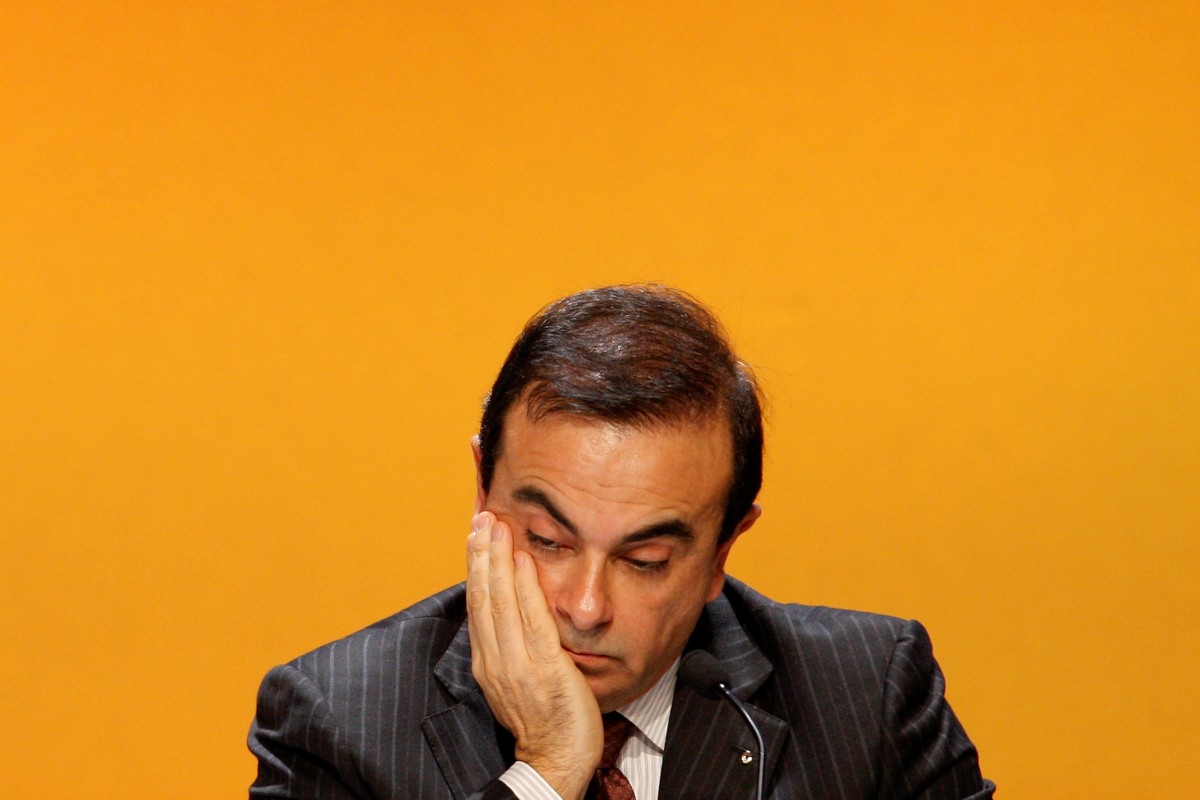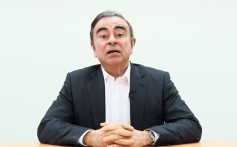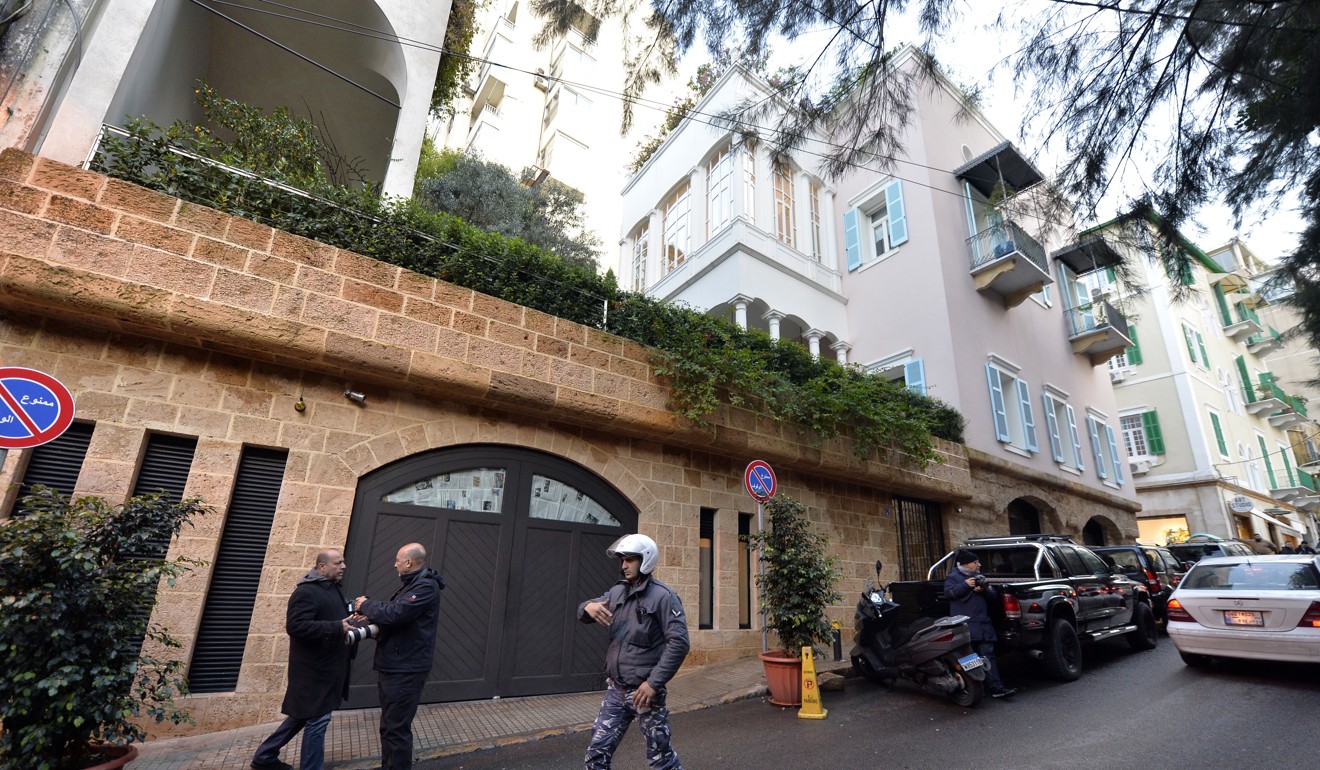A Brief Colonial History Of Ceylon(SriLanka)
Sri Lanka: One Island Two Nations
A Brief Colonial History Of Ceylon(SriLanka)
Sri Lanka: One Island Two Nations
(Full Story)
Search This Blog
Back to 500BC.
==========================
Thiranjala Weerasinghe sj.- One Island Two Nations
?????????????????????????????????????????????????Tuesday, January 7, 2020
Carlos Ghosn’s escape jet from Japan used illegally, Turkish company says
- The ex-Nissan chairman, who skipped bail in Tokyo and fled to Beirut, is due to be summoned by the Lebanese judiciary
- Turkey has detained seven people, including four pilots, as part of probe into how he passed through the country

A Turkish airline whose jets were used to fly Carlos Ghosn from
Japan to Lebanon said an employee falsified records and that Ghosn’s
name did not appear on any documentation related to the flights.
Ghosn, who is facing financial misconduct charges, jumped bail on
December 30 to avoid what he called a “rigged” Japanese justice system,
in a dramatic escape that has confounded and embarrassed authorities. He
flew in to Beirut on a private jet.
A Lebanese official on Friday said Ghosn was due to be summoned by the country’s public prosecutor next week.
Ex-Nissan boss Ghosn in Lebanon after fleeing ‘rigged Japanese justice system’
The Lebanese authorities have already stressed that Ghosn – who holds
the French, Lebanese and Brazilian nationalities – had entered the
country legally and that Beirut had no extradition agreement with Japan
An official, speaking on condition of anonymity, said a summons was
expected to be handed to Ghosn next week, as a result of Interpol
issuing a “red notice” against him.
‘Ghosn with the wind’: did ex-Nissan chief flee Japan in a box?
1 Jan 2020


“The Lebanese judiciary is obliged to hear him. But it can still decide
whether to arrest him or let him remain free,” the official said, adding
that Ghosn could be heard on January 7 or 8.
Ghosn’s daring escape spanned three continents and involved private planes, multiple passports and international intrigue.
Turkey on Thursday detained seven people as part of an investigation
into how he passed through the country, and they were appearing in court
on Friday. The country’s DHA news agency reported that those detained
were four pilots, a cargo company manager and two airport workers.

Carlos Ghosn’s house in Beirut. Photo: EPA-EFE
Also on Friday, Istanbul-based MNG Jet said it had filed a criminal
complaint in Turkey concerning the illegal use of its jet charter
services.
It did not say who the complaint was against, but it said one company
employee, who was under investigation by the Turkish authorities,
admitted to falsifying records and “confirmed that he acted in his
individual capacity” without MNG Jet’s knowledge.
The company said it had leased two separate private jets: one private
jet from Dubai to Osaka, Japan, and Osaka to Istanbul and another
private jet from Istanbul to Beirut.
“The two leases were seemingly not connected to each other. The name of
Mr Ghosn did not appear in the official documentation of any of the
flights,” MNG Jet said in a statement. The statement did not say who the
jets were leased to.
On Thursday, Interpol issued a wanted notice for Ghosn. Lebanese Justice
Minister Albert Serhan said that Beirut “will carry out its duties”,
suggesting for the first time that the automotive titan may be brought
in for questioning. But he said Ghosn entered the country on a legal
passport, and he appeared to cast doubt on the possibility Lebanon would
hand Ghosn over to Japan.
Soon after the Interpol notice, Ghosn issued a statement – his second
this week – seeking to distance his Lebanese wife and family from any
role in his escape.
“The allegations in the media that my wife Carole and other members of
my family played a role in my departure from Japan are false and
misleading. I alone organised my departure. My family played no role,”
he said.
Ghosn was set to go on trial in Japan in April. He arrived in Lebanon on
Monday via Turkey and has not been seen in public since. In a statement
on Tuesday, he said he fled to avoid “political persecution” by a
“rigged Japanese justice system”.
His lawyer in France, Francois Zimeray, told Japanese public broadcaster
NHK TV that he was in frequent contact with Ghosn since he arrived in
Lebanon, and Ghosn appeared to be filled with “a fighting spirit”.
Ghosn was eager to start clearing his name at the news conference next week, Zimeray said.
Ghosn, who grew up in Beirut and frequently visited, is a national hero
to many in this Mediterranean country with close ties to senior
politicians and business stakes in a number of companies. People take
special pride in the auto industry executive, who is credited with
leading a spectacular turnaround at Nissan beginning in the late 1990s
and rescuing the carmaker from near-bankruptcy.
Ghosn, who is charged in Japan with under-reporting his future
compensation and breach of trust, has repeatedly asserted his innocence,
saying authorities trumped up charges to prevent a possible fuller
merger between Nissan Motor and Renault.
Additional reporting by Agence France-Presse
This article appeared in the South China Morning Post print edition as:
Private jet company puts blame for Ghosn’s daring escape on rogue
employee


